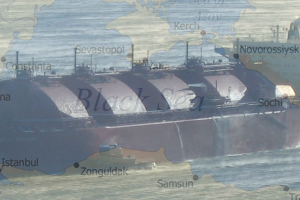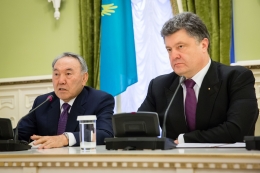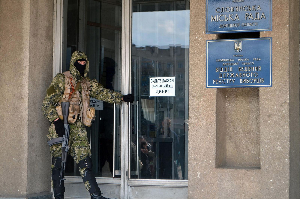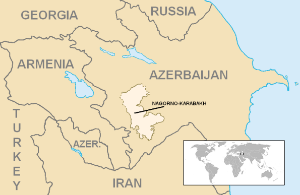Will Russia deploy Chechen units to Syria?
By Emil Souleimanov
November 9th, 2015, The CACI Analyst
Chechnya’s Ramzan Kadyrov has recently expressed readiness to deploy Chechen militia to Syria as part of a Russian ground force to support President Bashar al-Assad. Russian authorities have from the outset of Russia’s military engagement in the Middle East virtually ruled out the possibility of deploying ground forces, confining their engagement to air power. Yet, according to some observers, it could under certain circumstances become necessary for Moscow to also deploy ground troops. The deployment of Chechen troops to Syria is therefore a prospect to consider in the months to come.
AGRI's progress advances Brussels' and Baku's energy agendas
By Micha’el Tanchum (08/07/2015 issue of the CACI Analyst)
On June 24, 2015, Azerbaijan, Georgia and Romania signed a declaration committing to advance the Azerbaijan-Georgia-Romania Interconnector (AGRI) project that will transport Azerbaijani LNG across the Black Sea to Romania for re-gasification and sale in European markets. The project creates a theoretical possibility for Turkmen LNG to reach Europe through a modified use of the system. Of great geopolitical consequence, the option requires a commensurate amount of political will to implement. Independent of potential Turkmen gas exports, the furtherance of the AGRI project constitutes an important advance for Azerbaijan’s strategic policy to develop European Union stakeholders in its political sovereignty.

Astana Strives to Resolve Ukraine Conflict
By Richard Weitz (01/22/2015 issue of the CACI Analyst)
Kazakhstan stands out in Central Asia and the South Caucasus for its government’s activist diplomacy directed at building institutions, promoting disarmament, and reducing Eurasian conflicts. Astana has sought to ban nuclear tests globally and extend confidence-building mechanisms throughout Asia, and Kazakhstan’s past conflict resolution efforts have addressed Iran, water disputes, and Afghanistan. Kazakhstan’s current mediation effort concerns the Ukraine conflict. Kazakhstan’s recurring challenge, which may disrupt its Ukrainian efforts, is that its ability to resolve disputes is limited in the absence of supporting partners.

The Sundry Motivations of Caucasians in Ukraine
By Emil Souleimanov (10/15/2014 issue of the CACI Analyst)
One attribute of the armed conflict in eastern Ukraine’s Donbas area has been numerous speculations on the involvement of foreign fighters on both sides to conflict. Amid the diverse body of volunteers and mercenaries involved in the war, Chechens and other North Caucasians have received particular attention due to their fame as fierce warriors, and because their involvement in the conflict on the side of pro-Russian forces has constituted solid evidence of Moscow’s military engagement in the war. Yet the fact that Caucasian volunteers participate also on the Ukrainian side, and the ambivalence toward the conflict locally in the North Caucasus, demonstrate the diversity of motives and incentives inducing Caucasians to fight in Ukraine.

Resurgence of the Nagorno-Karabakh Conflict - A Russian Move on the Ukraine Chessboard
By Avinoam Idan (09/03/2014 issue of the CACI Analyst)
The return of open fire in the Nagorno-Karabakh (NK) conflict recently brought about a meeting between the presidents of Azerbaijan and Armenia in Sochi, under the auspices of President Putin, on August 10, 2014. The growing tension in the conflict and the Sochi meeting take place against the background of the crisis in Ukraine. The Karabakh conflict serves as Russian leverage in influencing and promoting Russia’s geostrategic aims in the Caucasus and beyond, and Russia’s new initiative in the conflict meant to improve Russia’s stance in its confrontation with the U.S. and EU and its hegemony over the gateway to Eurasia.








